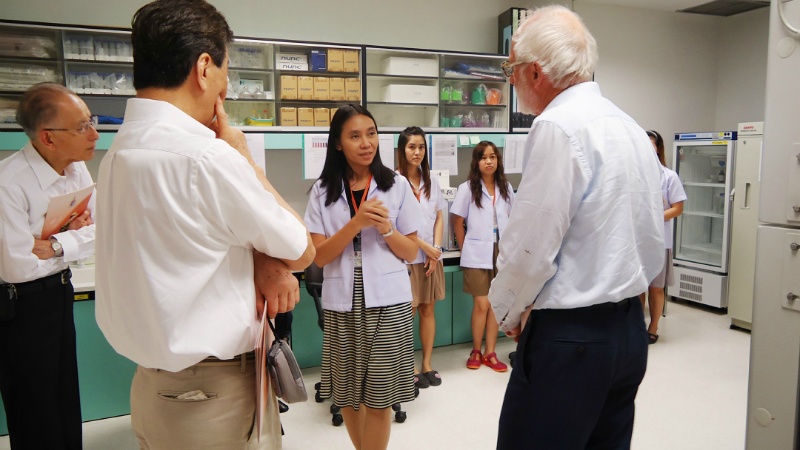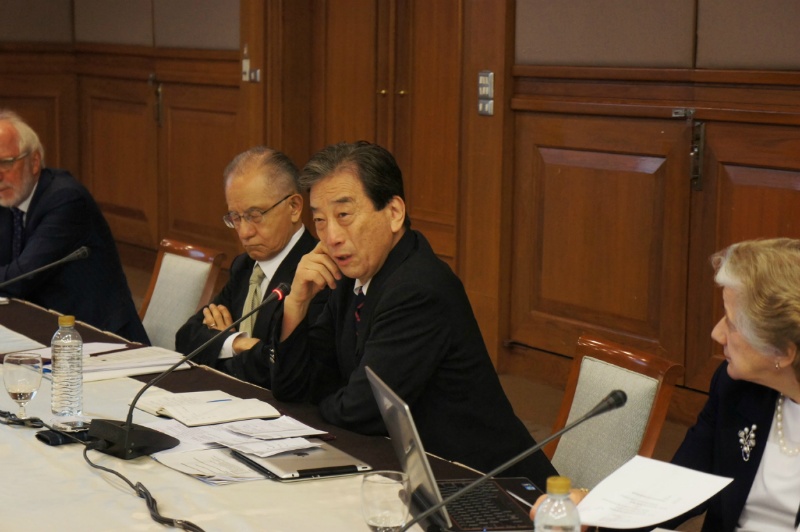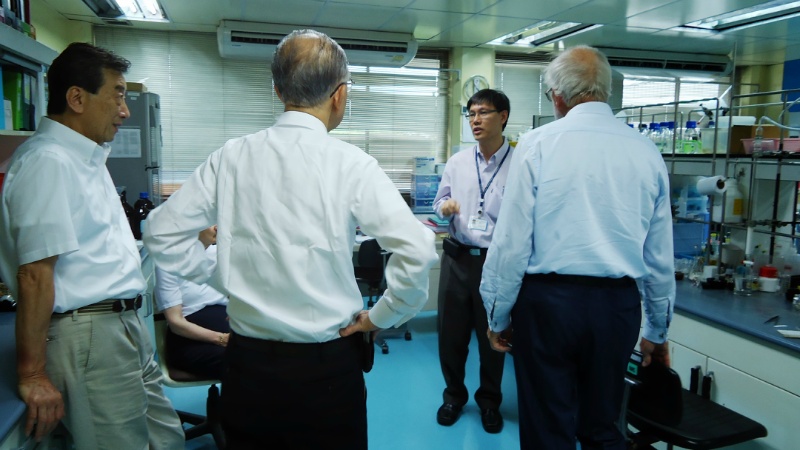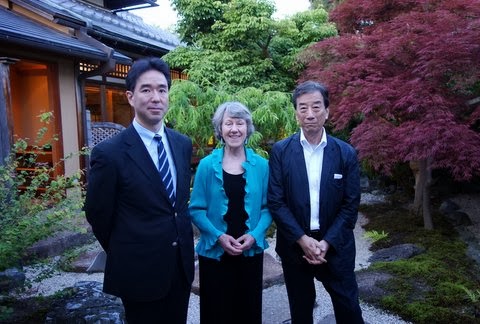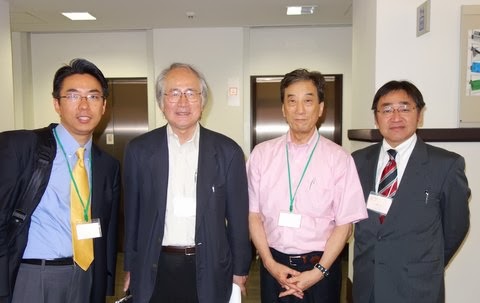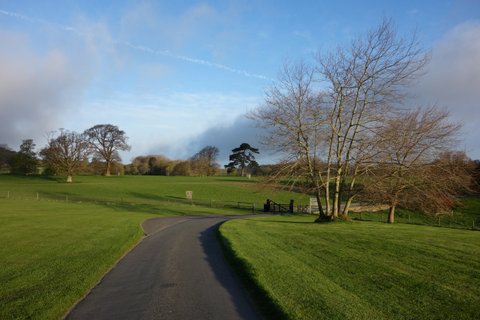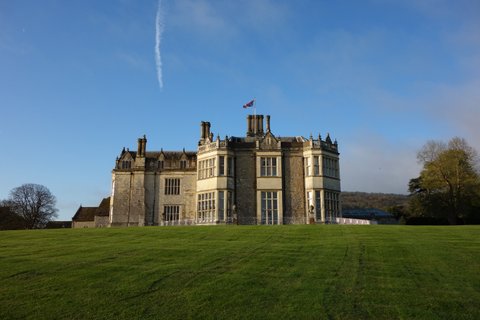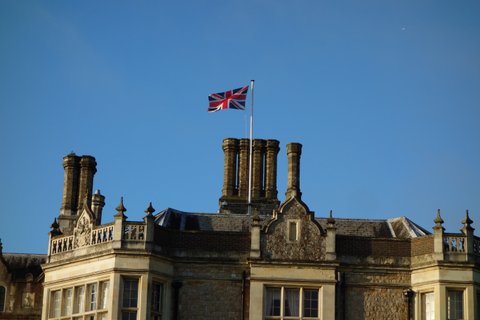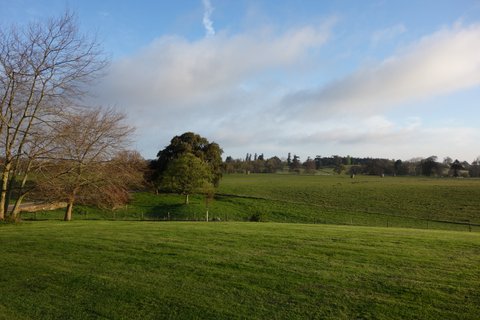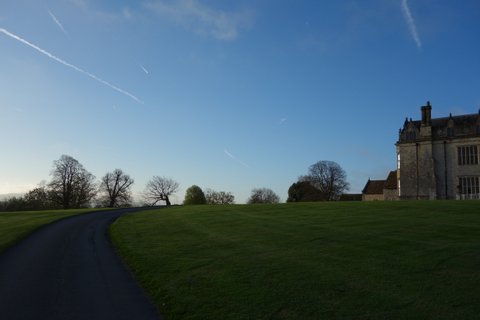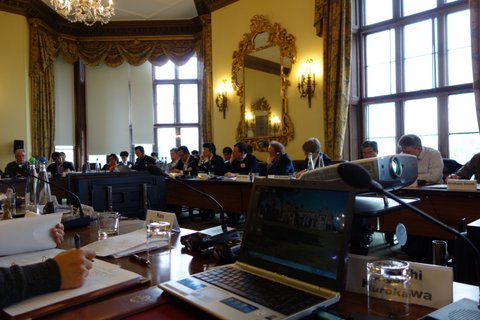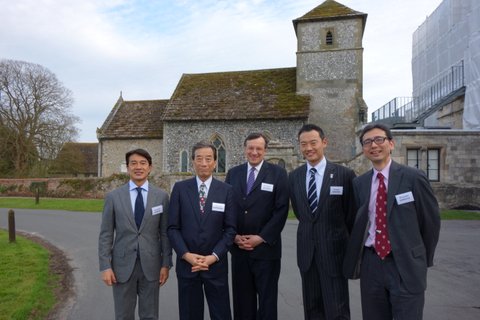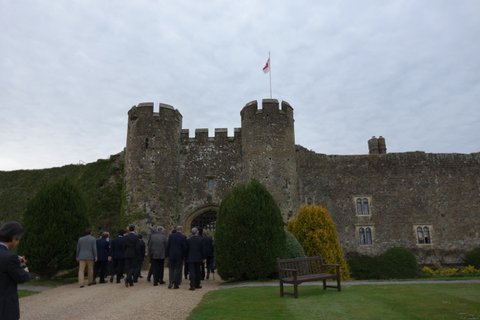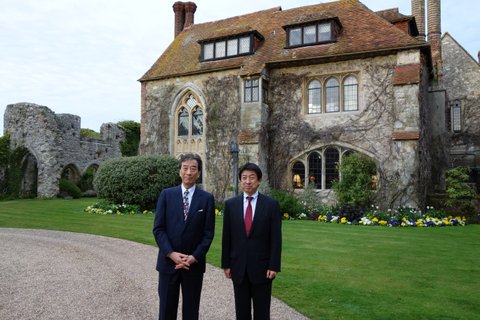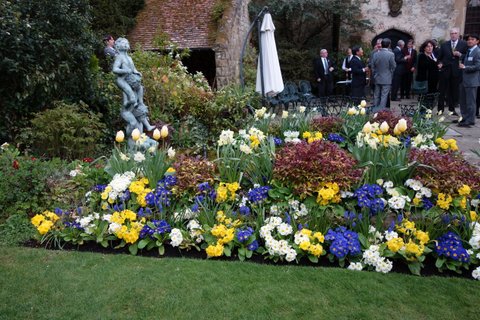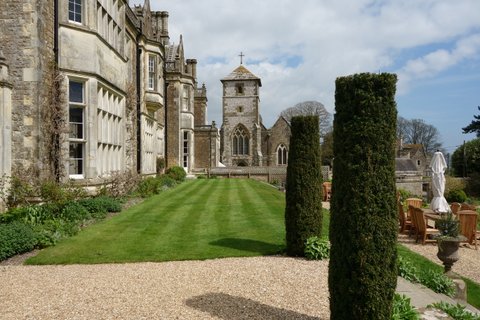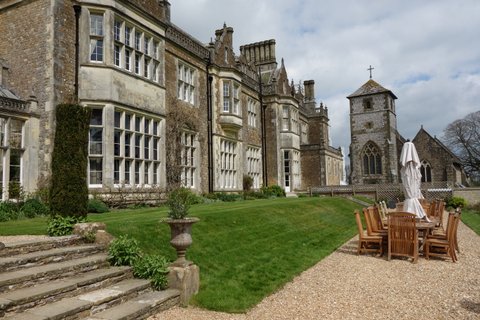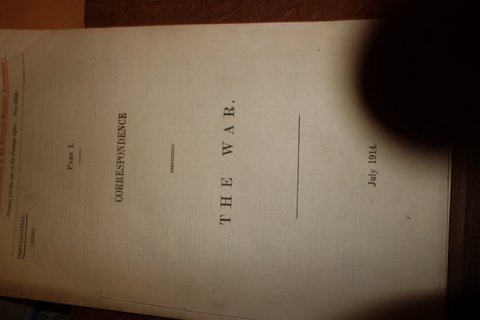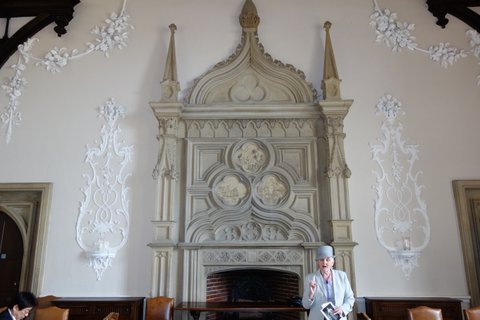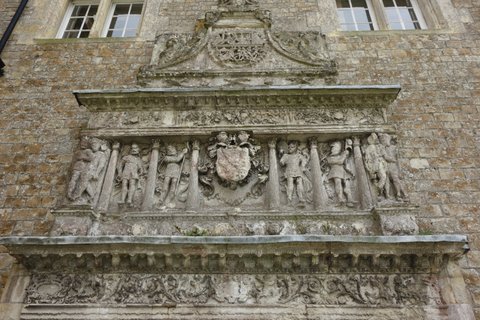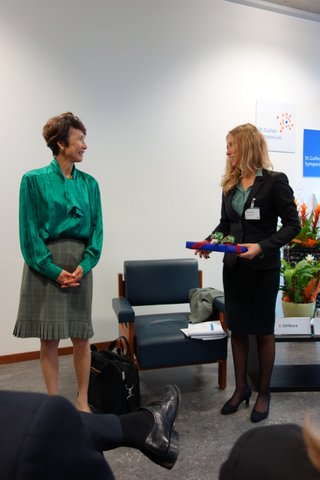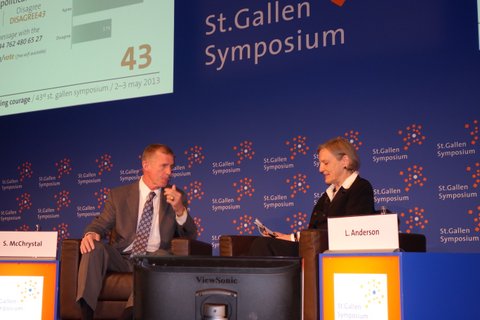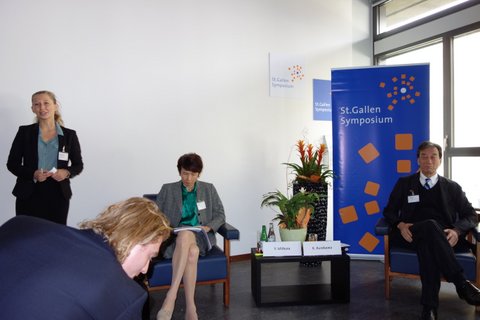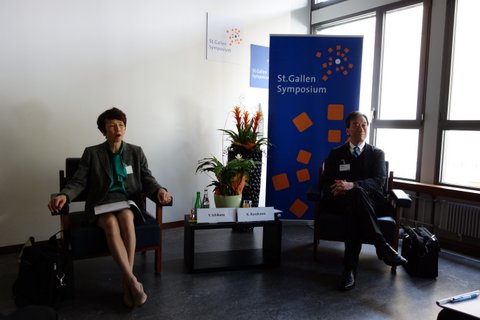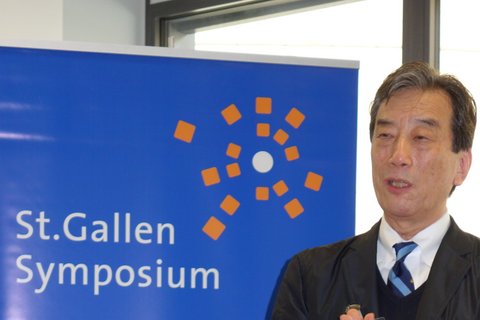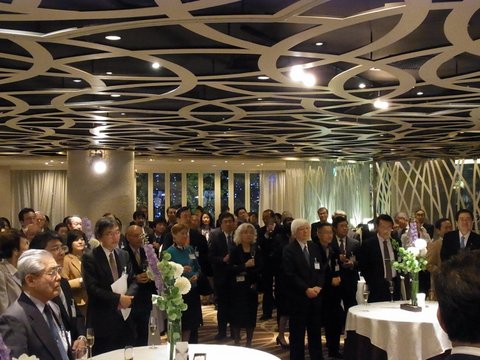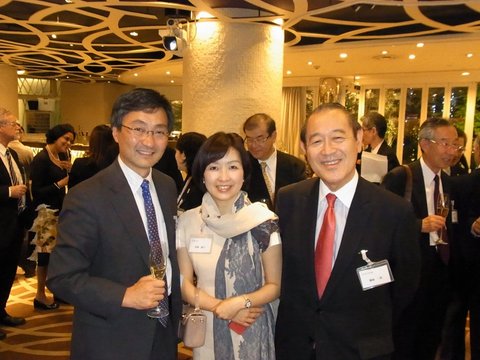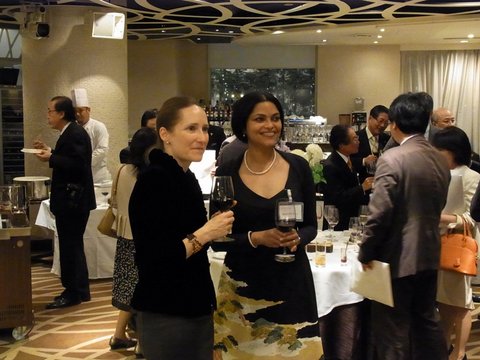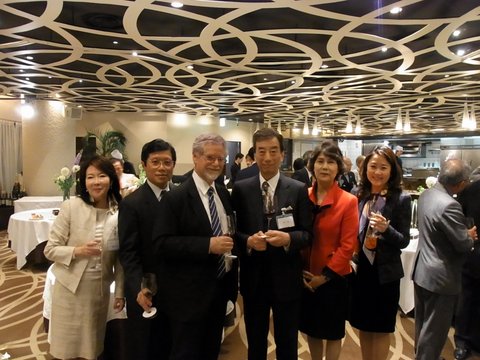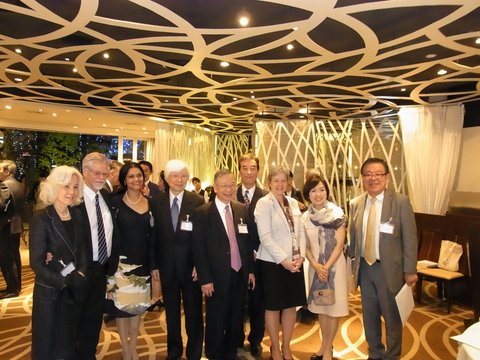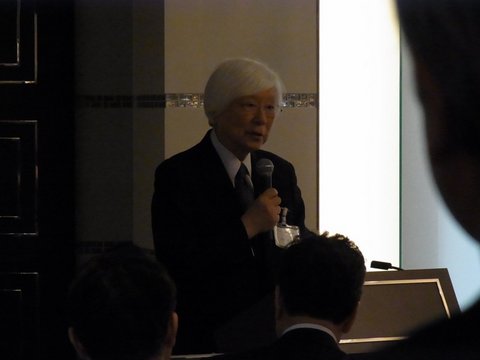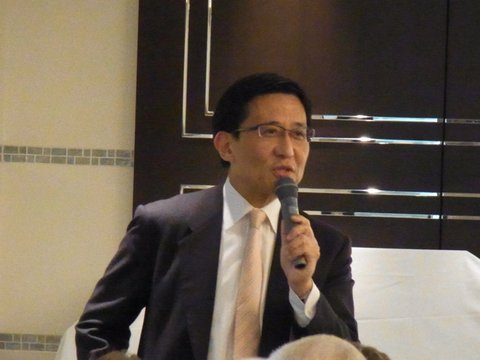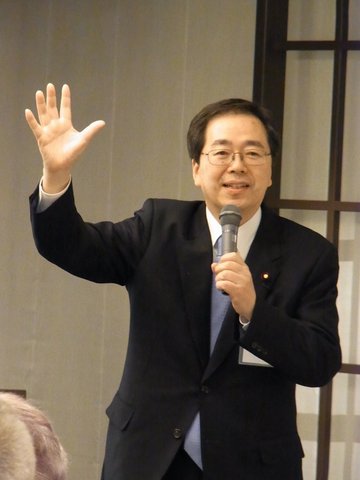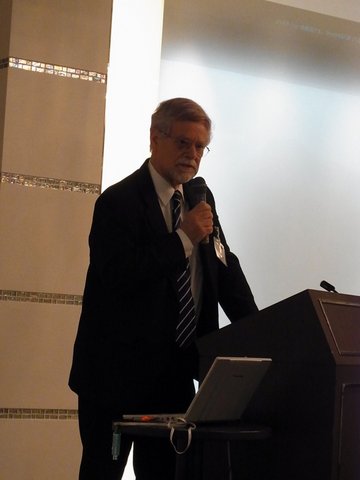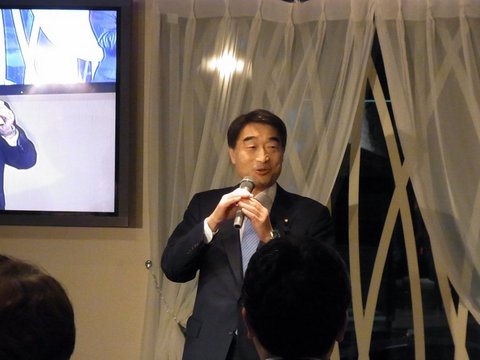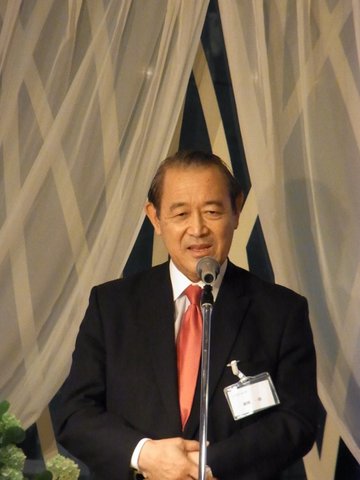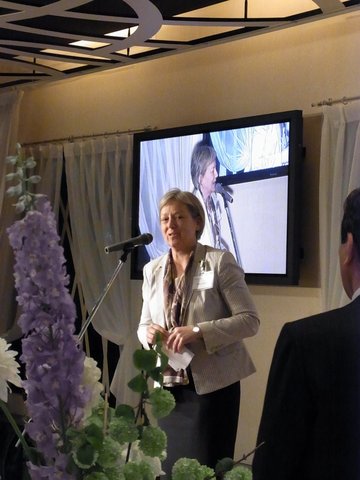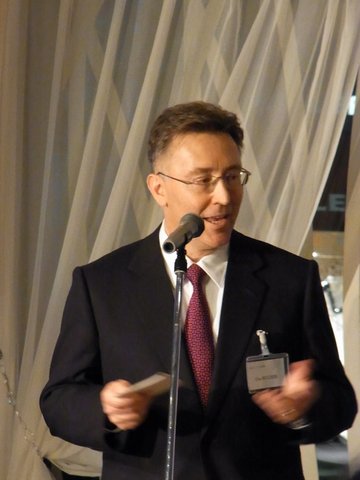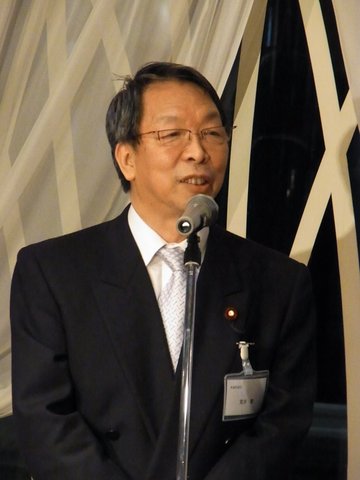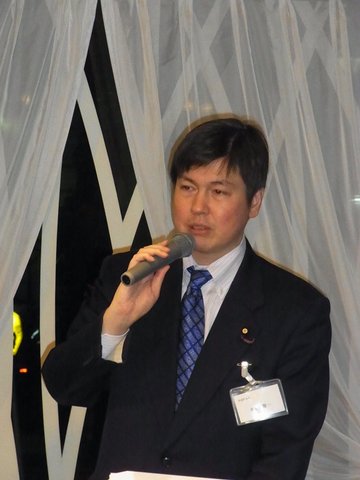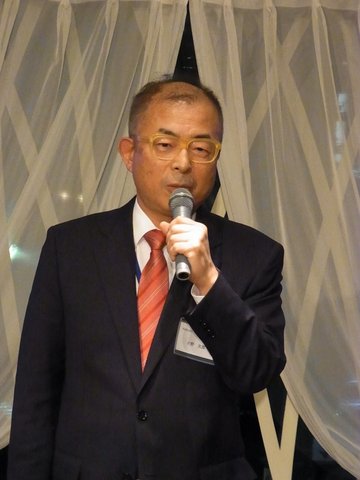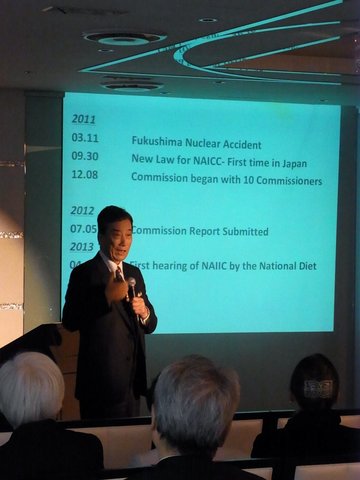I have not posted recently though in fact I have been part of several interesting things ever my early breakfast at the British Embassy after an early morning flight from Bangkok on the 31st of May, I have not updated this column.
Anyway, I would like to report that the HGPI and the JCIE jointly hosted the fifth and final installation of the symposium on development in Africa (website in Japanese, Facebook page) in the run-up to the TICAD5. For dinner, I headed to Yokohama with the board of directors for GHIT (Global Health and Innovation Technology), with whom I would be having a meeting the next day. I spent the night at Yokohama.
The GHIT is a rare initiative, combining private and public interests with the Gates Foundation, and has a 5 year program. I get the feeling that it is going to be hard to stand at the helm of this organization.
The next morning started with the meeting of the board of directors, followed by a council meeting and then a press conference, and then I was in Tokyo. I had been invited to talk at the beginning of the ‘Global Agenda Seminar’(blog in Japanese) by Yoko Ishikura, and pretty soon, I had to head back to Yokohama in order to attend the award ceremony for the Hideyo Noguchi Africa Prize.
I welcomed the two recipients, Dr Peter Piot and Alex Cortinho and introduced them to the Emperor and the Empress. I was kept busy by the presentation ceremony and the reception dinner, and was able to go back home only late at night.
So this is what I was doing after returning from Bangkok on the 31st of May and the 1st of June. Considering the fact that it was only two days, I think I managed to accomplish a lot.
On the 2nd of June, I attended the farewell party held in memory of Mineo Nakajima (newspaper article in Japanese and English, Wikipedia page in Japanese), the late founder of the now famous Akita International University. In the short span of 10 years, AIU has earned praise for its mission of educating world-class university students. He was a wonderful scholar, a true educator; we will truly, truly miss him. I join my hands in prayer for this teacher who left us so suddenly.
